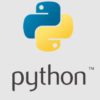Tag: Python
Pandas Series: Diverse Methods for Creating Series in Python
Understanding Pandas Series Definition A Pandas Series is a one-dimensional array-like object capable of holding any data type. It is…
Extracting day, month, and year from Datetime in Pandas: A practical guide
Working with datetime data is a common requirement in data analysis. In Pandas, Python’s powerful data manipulation library, extracting specific…
Seamless conversion: Transforming lists into Pandas series
Converting a list to a Pandas Series is a fundamental task in Python data manipulation, allowing you to leverage the…
Enhancing data manipulation in Pandas: Techniques for returning multiple columns
Working with data frames in Python’s Pandas library often involves selecting and manipulating multiple columns. This article explains how to…
Upgrading Pandas: A guide to updating to the latest or specific versions
Pandas is an open-source, BSD-licensed library providing high-performance, easy-to-use data structures, and data analysis tools for Python. Regular updates to…
Efficiently checking for empty DataFrames in Python – Pandas
In data analysis and processing, it’s often crucial to determine whether a DataFrame, a core data structure in Pandas, is…
Tracking server response time with Python
In the digital age, server performance is a cornerstone of user experience. Understanding and monitoring server response times is critical…
Adding empty columns to your DataFrame in Python Pandas
Pandas is a cornerstone tool for data manipulation in Python, offering extensive functionalities for data analysis. One common task in…
Python script for monitoring GPU metrics (temperature and utilization) on a server
Monitoring server GPU temperature and utilization is a critical task for ensuring the health and performance of systems, particularly those…
Python script to track the health of Kubernetes pods
Creating a Python script to track the health of Kubernetes pods involves interacting with Kubernetes’ APIs to monitor and report…








